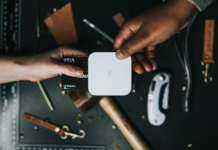Nach der Instagram-Facebook-Überraschung: Jeden kann es treffen – auch Twitter(Netzwertig, 11.4.)
Der Fall Instagram macht deutlich, dass selbst rasant wachsende Dienste, die als nächstes großes Ding gehandelt werden, nicht vor einer ihr Schicksal in Frage stellenden Übernahme gefeilt sind. Twitter könnte Ähnliches ereilen.
Gründerwohngemeinschaften im Silicon Valley – von der Ökonomie des Zusammenlebens
(Gründerszene, 11.4.)
Im Silicon Valley entdecken Gründer nicht nur Co-Working, sondern Co-Living für sich. Immer mehr Entrepreneure leben zusammen und öffnen ihre Türen auch für Kurzzeit-Bewohner. Gründerszene hat einige Startup-WGs im Valley besucht und einen Blick hinter die Türen geworfen. Bald könnte es das Konzept auch in Deutschland geben.
Rocket Internet, the Berlin-based clone merchant, is one of Europe’s most powerful internet businesses — and it’s growing all the time. With the recent news that the incubator-slash-accelerator is apparently now looking to copy Square, it’s worth examining how far the company has already come.
Apple founder fears patent war fallout(The Australian Financial Review, 10.4.)
The man who co-founded Apple – the world’s most valuable company – in the garage of Steve Jobs’ parents, fears the torrent of intellectual property lawsuits being filed by companies such as Apple, Samsung, Google, HTC and Nokia could prevent future entrepreneurs from treading a path to technology fortune.
Wie die Q-Cells-Gründer reich wurden
(FAZ, 7.4.)
Der einst größte Solarzellenproduzent der Welt ist insolvent. Am Anfang von Q-Cells standen linke Ingenieure, McKinsey-Berater und eine Öko-Pionierin. Die meisten sind rechtzeitig ausgestiegen. Und reich geworden.





